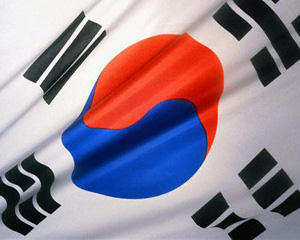South Korea: North deploys new medium-range missiles
 Seoul - North Korea has deployed medium-range ballistic missiles that could reach the US Pacific territory of Guam, a South Korean military report said Monday.
Seoul - North Korea has deployed medium-range ballistic missiles that could reach the US Pacific territory of Guam, a South Korean military report said Monday.
The newly developed missiles could carry a 650-kilogram warhead 3,000 kilometres, the Defence Ministry said in its so-called White Paper security assessment of North Korea.
With that range, the missiles could reach Japan, the northern tip of Australia and large parts of China, India and Russia.
In addition, North Korea has increased it military by 20,000 soldiers since 2006 and now has 1.19 million troops while also strengthening its special ground forces and submarine fleet, the white paper said.
The report called the military of the Stalinist country an "immediate and grave threat" as tensions between the two neighbours have escalated in the past year.
The heavily armed yet impoverished North Korea has the fifth-largest military in the world. South Korea, in contrast, has 680,000 troops.
Both countries still find themselves technically at war after the 1950-53 Korean War ended with a truce and not a peace treaty.
The deployment of the medium-range missiles was completed last year, said the report, which did not include how many missiles were deployed or where.
South Korean officials have also said that North Korea has been preparing for weeks for a test launch of its long-range Taepodong-2 missile.
The US military said that if technically perfected, the Taepodong- 2 could reach the US state of Alaska and carry a nuclear warhead.
The missile developments came amid escalating threats from North Korea. Last week, its military warned that it was prepared for "an all-out confrontation" with its neighbour on the Korean Peninsula.
The North Korean People's Army also threatened an open military conflict with the South in January, saying South Korean President Lee Myung Bak and his "puppet military war hawks" would force it "to take a strong military retaliatory step to wipe them out."
Repeated requests by Seoul for dialogue with Pyongyang have been rejected. Instead, Pyongyang has threatened Seoul with annihilation several times over the past weeks and in late January scrapped bilateral reconciliation agreements and nullified an agreement over its sea border with the South. It accused Lee's government of pursuing a confrontational policy.
Relations between the neighbours have soured since Lee took office a year ago, scrapped the so-called Sunshine Policy of his liberal predecessors and adopted a tougher course toward Pyongyang, demanding progress in dismantling the North's nuclear weapons programme in exchange for aid. (dpa)